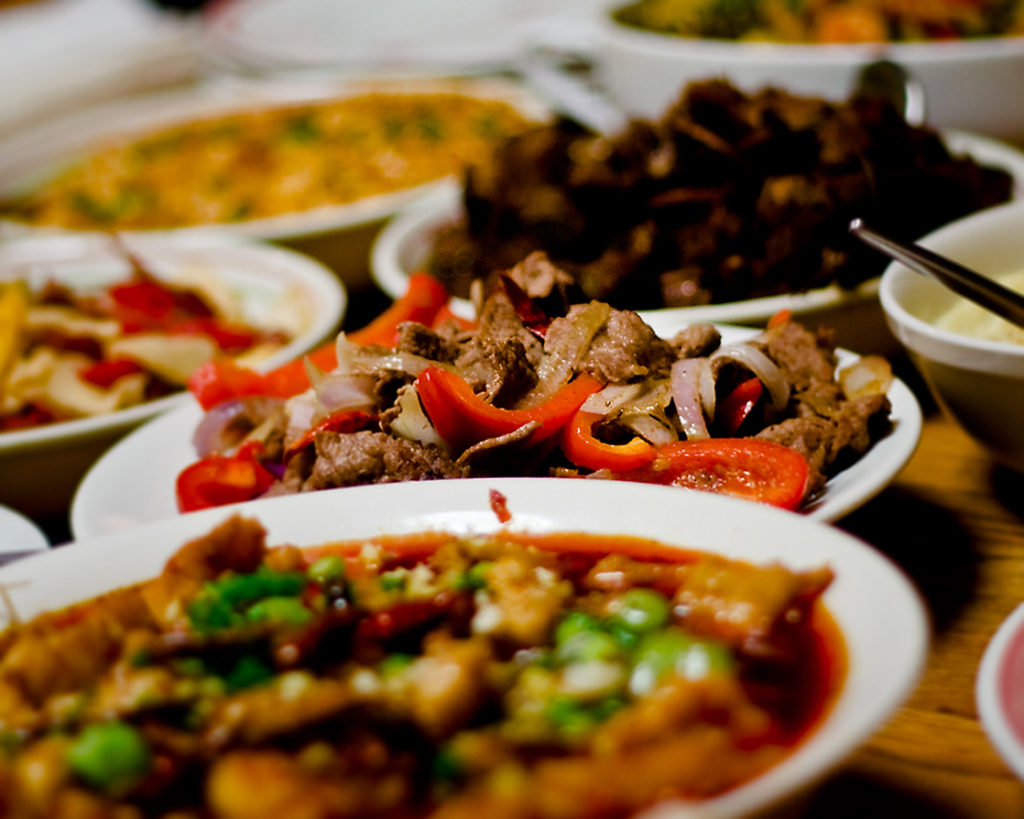Learning Outcomes
- Discuss the role of neural regulation in digestive processes

Figure 1. Seeing a plate of food triggers the secretion of saliva in the mouth and the production of HCL in the stomach. (credit: Kelly Bailey)
In reaction to the smell, sight, or thought of food, like that shown in Figure 1, the first hormonal response is that of salivation. The salivary glands secrete more saliva in response to the stimulus presented by food in preparation for digestion. Simultaneously, the stomach begins to produce hydrochloric acid to digest the food. Recall that the peristaltic movements of the esophagus and other organs of the digestive tract are under the control of the brain. The brain prepares these muscles for movement as well. When the stomach is full, the part of the brain that detects satiety signals fullness. There are three overlapping phases of gastric control—the cephalic phase, the gastric phase, and the intestinal phase—each requires many enzymes and is under neural control as well.
Digestive Phases
The response to food begins even before food enters the mouth. The first phase of ingestion, called the cephalic phase, is controlled by the neural response to the stimulus provided by food. All aspects—such as sight, sense, and smell—trigger the neural responses resulting in salivation and secretion of gastric juices. The gastric and salivary secretion in the cephalic phase can also take place due to the thought of food. Right now, if you think about a piece of chocolate or a crispy potato chip, the increase in salivation is a cephalic phase response to the thought. The central nervous system prepares the stomach to receive food.
The gastric phase begins once the food arrives in the stomach. It builds on the stimulation provided during the cephalic phase. Gastric acids and enzymes process the ingested materials. The gastric phase is stimulated by (1) distension of the stomach, (2) a decrease in the pH of the gastric contents, and (3) the presence of undigested material. This phase consists of local, hormonal, and neural responses. These responses stimulate secretions and powerful contractions.
The intestinal phase begins when chyme enters the small intestine triggering digestive secretions. This phase controls the rate of gastric emptying. In addition to gastrin emptying, when chyme enters the small intestine, it triggers other hormonal and neural events that coordinate the activities of the intestinal tract, pancreas, liver, and gallbladder.
Try It
